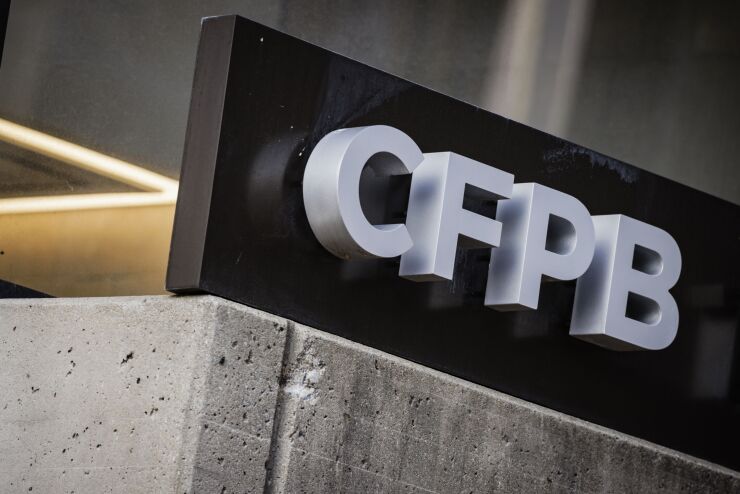- Fintechs are actively fighting to implement the CFPB's open banking rule
- The open banking rule is a central point of contention between fintechs and traditional banks
- The current litigation stems from the Trump administration's stance on the rule
Overview bullets generated by AI with editorial review.
WASHINGTON — A group representing fintech companies has filed an opposing brief urging the court to allow the Consumer Financial Protection Bureau's open banking rule to go into effect while litigation continues.
The brief is emblematic of rising tensions between tech interests and bankers in President Donald Trump's Washington. While fintech firms and nonbank financiers have had big wins on issues like crypto and nonbank oversight, bankers have found themselves on the losing ends of many of those same issues, although they've so far
During the Biden administration, the CFPB finalized a rule
The Bank Policy Institute, alongside the Kentucky Bankers Association and a community bank in Lexington, Kentucky,
That lawsuit, which has now been ongoing for just under a year, has become the central battleground in open banking. Bankers, including JPMorgan CEO Jamie Dimon, warned in his shareholder letter this year that a "new battle is brewing" over the issue.
"Third parties want full access to banks' customer data so they can exploit it for their own purposes and profits," Dimon said. "Contrary to what you may read, we have no problem with data sharing but only if it is done properly: It must be authorized by the customer — the customer should know exactly what data is shared and when and how it is used; third parties should pay for accessing the banking system and payment rails; third parties should be restricted from using the customers' data for purposes beyond what the customer authorized, and they should be liable for the risks they create when accessing and using that data."
The Financial Technology Association has now filed a brief in the Kentucky case that argues against the BPI lawsuit and the indefinite delay of the 1033 rule.
Penny Lee, the CEO and president of the FTA, said that the group is "essentially asking the court to pre-emp the CFPB's rulemaking and hamstring the agency before it even hears from stakeholders."
"That's not how our regulatory process works, and it's not how consumers' rights should be decided," she said. "Efforts to delay implementation and seek to charge consumers for their own data are unlawful, anti-competitive, and contrary to the public interest."
FTA asked that the plaintiffs' requests to stay the rule's compliance dates — which start in mid-2026 — and to halt any enforcement for a year while litigation is ongoing, be denied.
"The Court has other, more tailored tools at its disposal, such as requiring more frequent status reports from the CFPB, to ensure that the rulemaking proceeds expeditiously," FTA said in its brief. "The proper course, therefore, is to maintain the current stay of proceedings and, at most, require more frequent reporting — but not to interfere with the CFPB's ongoing rulemaking."







